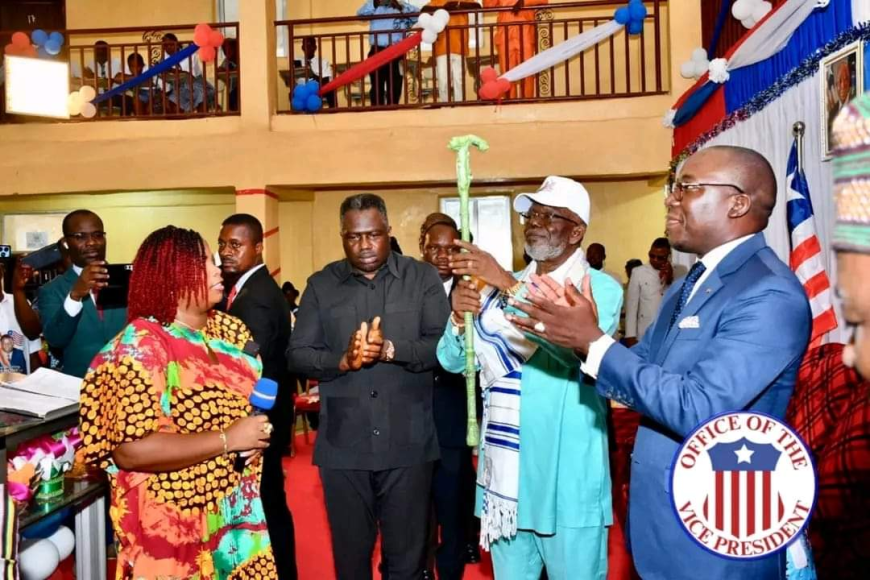"A Mythical 'Never-Die' Syndrome Faces Senator Prince Johnson's Passing."

The passing of Nimba County Senator Prince Johnson on the morning of November 28, 2024, has sent shockwaves across Liberia. Reports confirm that the influential politician died at approximately 7 a.m. at the Hope for Women Hospital in Paynesville, Montserrado County. As news of his death spread, confusion and skepticism arose, with many questioning the legitimacy of the announcement. High-ranking government officials, along with both personal and state-employed doctors, rushed to the hospital to verify the claim.
While some continue to dispute the reality of his death, speculations abound regarding the cause. A myth circulates that Johnson may have missed a critical ritual—one believed by some to protect him from untimely death. Others remain convinced that the senator is not dead, claiming he is simply playing a trick on the public. Meanwhile, in his home regions of Nimba and Grand Gedeh, celebrations have erupted, as many of his followers believe his legacy remains unscathed.
Prince Johnson's life is a tale of complexity and paradox. Revered as a god-like figure among his people, particularly the Gio tribe, he was an influential figure who seemed to defy the odds, both in his political rise and his ability to stay relevant over decades. From warlord to senator, Johnson’s journey through Liberia’s turbulent political landscape is nothing short of extraordinary.
At his residence in Paynesville, a large gathering of political elites, including Senators Prince Moye, Edwin Snowe, and Albert Chea, gathered to pay their respects. Despite the heavy attendance of influential figures, doubts about the authenticity of his death persisted. For over 21 years, Johnson remained a key player in Liberian politics, having shaped the careers of Presidents Ellen Johnson Sirleaf, George Weah, and Joseph Boakai. His influence was undeniable, with many acknowledging that, while he never achieved the presidency himself, he decisively determined who would lead Liberia.
Yet, his legacy is not without controversy. His role in the Liberian civil war, where he was responsible for atrocities that are still widely condemned, has cast a long shadow over his political career. Critics point to his refusal to take full responsibility for his actions during the war, and his unapologetic political strategies, which often exploited tribal divisions for personal gain. Despite these flaws, Johnson commanded unwavering loyalty from his supporters, many of whom viewed him as a protector of their interests.
Beyond his controversial past, Johnson’s transformation into a self-proclaimed man of God added another layer to his public persona. As a pastor, his sermons—often contentious and controversial—made national headlines. His association with Prophet Joshua, another figure who passed under similarly mystifying circumstances, only added to the mythos surrounding him.
In the 24 hours leading to his death, multiple doctors were dispatched to confirm his passing. Even Liberia’s Vice President, despite their strained relationship in recent months, was reported to have broken down in tears upon hearing the news. The two had been seen together just days earlier, attending a ceremony to open a new university hall in Nimba County, funded by the late senator.
As Liberia prepares to lay Senator Prince Johnson to rest, the nation finds itself grappling with how to remember such a polarizing figure. How should future generations view him? Should he be included in textbooks, studied in universities, or portrayed as a hero or a villain? Regardless of the opinions surrounding his legacy, one thing is clear: Prince Johnson’s impact on Liberia is indelible. Whether loved or hated, his influence shaped the course of the nation’s political history. Liberia is bidding farewell to a man who embodied the complexities of war, politics, and power in one remarkable—and controversial—life.
In the end, his legacy will be both celebrated and contested, but undeniably significant to the history of Liberia.
What's Your Reaction?








































































